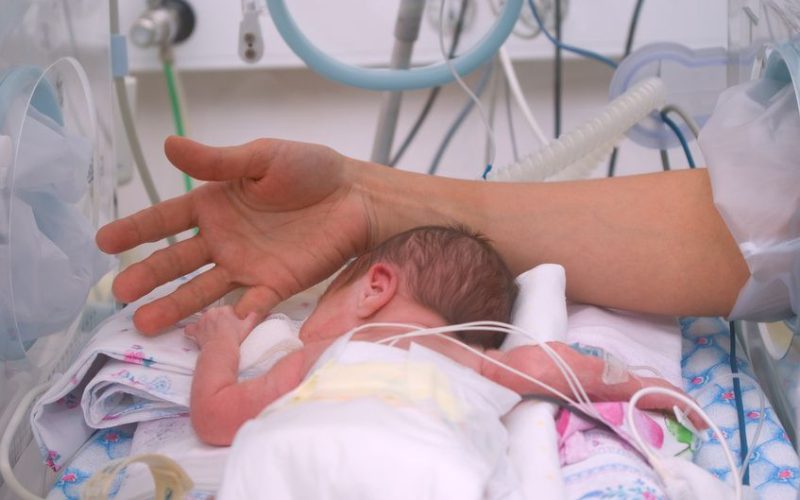Severe RSV bronchiolitis is caused by a delayed, deranged or prolonged innate immune response. Defects in innate immunity can contribute to these processes in several ways: a deficit in detectors/sensors will result in impaired recognition of the virus with an impaired or delayed response as a result. In addition, dysfunctional neutrophils can determine disease outcome by inducing immune pathology. According to Sjanna Besteman in her PhD thesis, both of these effects can lead to impaired resolution of disease.
Respiratory syncytial virus (RSV) is one of the most important pathogens identified in respiratory tract infections in young infants. To improve health care outcome it is important to gain insight in the host immune response. The immune response against RSV is characterized by an influx of neutrophils to the lung. The outcome of RSV infection is determined by a balance between efficient neutrophil-mediated antimicrobial activity and while avoiding lung immune pathology. To better understand the harmful versus protective role of neutrophils during RSV infection, PhD candidate Sjanna Besteman (Center for Translational Immunology, UMC Utrecht) performed several mechanistic studies.
RNA sequencing of airway-derived neutrophils revealed an interferon response during severe RSV infection. That this interferon response is present in severe disease might indicate that this response is insufficient in protecting the host from infection, and coincided with immune-induced pathology. Additionally, she aimed to develop a 3D airway model that can be used to study epithelial and neutrophil interaction during RSV infection in vitro.
Several therapeutic methods can be applied to dampen neutrophil-mediated lung damage, including inhibiting neutrophil-derived products or targeting inhibitory receptors. Besteman investigated the potential of two inhibitory receptors expressed on neutrophils: SIRL-1 and LAIR-1. Targeting these receptors with agonistic antibodies inhibited the function of airway neutrophils from infants with severe RSV infection ex vivo.
Sjanna Besteman and colleagues also identified a patient with CD14 deficiency, a novel monogenetic disease of the innate immune system, as a possible cause of recurrent severe RSV bronchiolitis. This study confirms that CD14 mediates the innate immune response against RSV.
RSV infection causes breathing difficulties and wheezing and can result in serious respiratory illnesses, such as bronchiolitis and pneumonia. Diseases caused by RSV are estimated to occur in over 30 million young children, the elderly and other vulnerable groups around the world each year. Current treatments are mostly aimed at relieving the symptoms of the infection, but vaccines that prevent RSV are in clinical development as well as novel antivirals for treatment of the infection.
Sjanna Bo Besteman (1985, Heemskerk) defended her PhD thesis on June 28, 2022 at Utrecht University. The title of her thesis is “The local innate immune response during severe respiratory syncytial virus infection”. Supervisors were prof. dr. Louis Bont (RSV Research Group, UMC Utrecht) and prof. dr. Linde Meyaard (Center for Translational Immunology, UMC Utrecht). Sjanna will complete her residency in pediatric medicine in the beginning of 2023.
